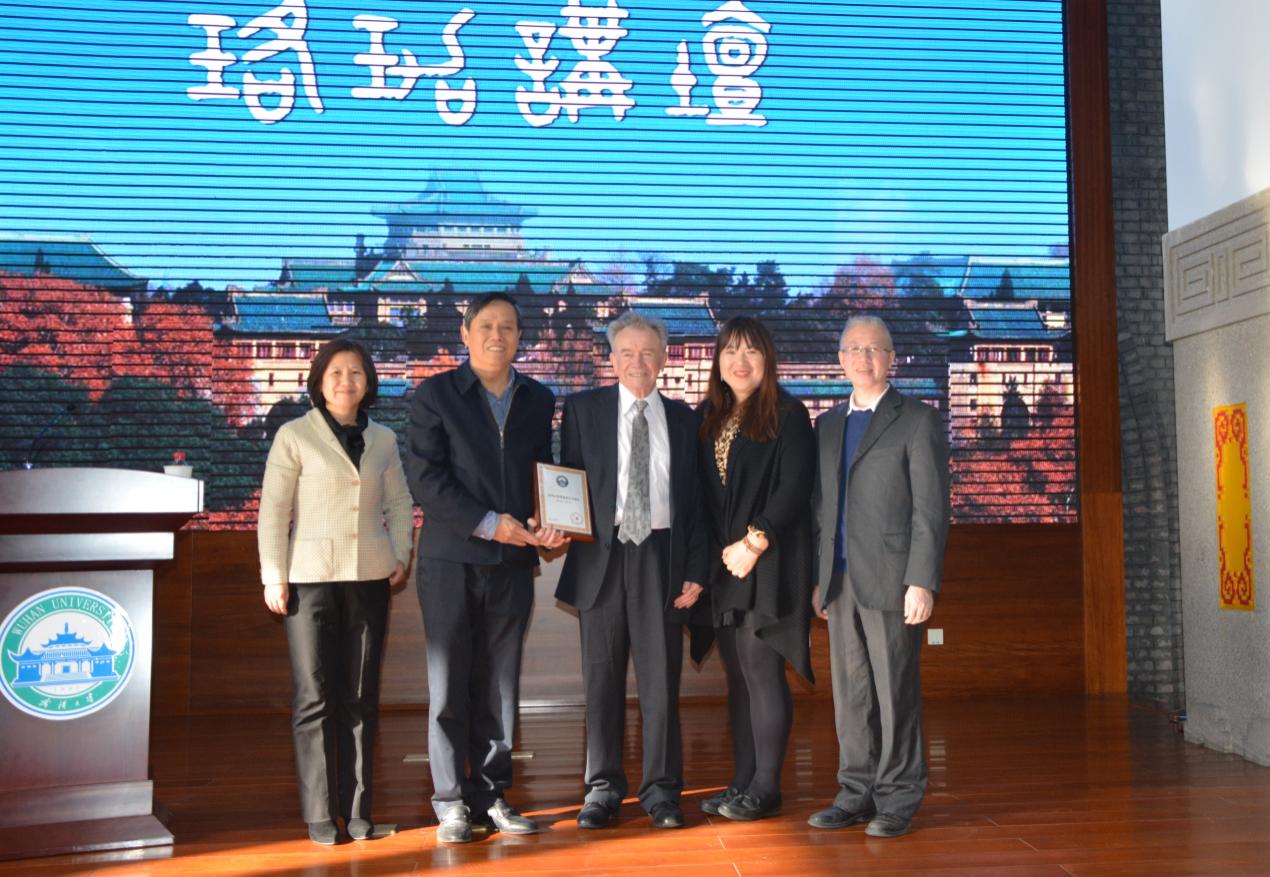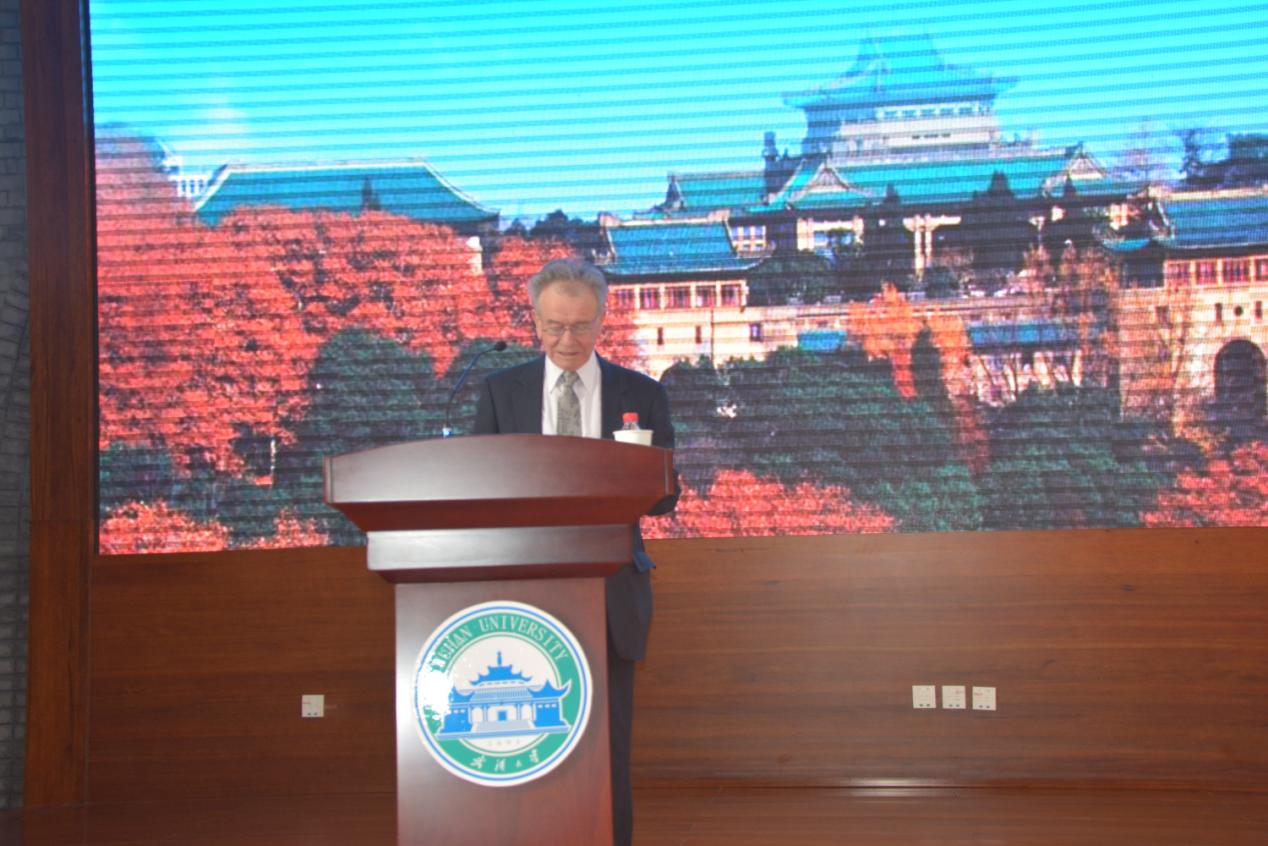On November 14, 2019, Professor Martin Albrow was invited to give a lecture on the topic of What the World Can Gain from China’s Global Leadership at the Old Library, one of the earliest historical buildings of Wuhan University.

Prof. Albrow (middle) with professors from School of Marxism, Wuhan University
Professor Matin Albrow is a fellow of Academy of Social Sciences in the UK and previous President of the British Sociological Association. He has a PhD from the University of Cambridge and is the founder editor of International Sociology, journal of the International Sociological Association. He is internationally renowned for his pioneering research on globalization. He specializes in social theory, organization theory and Max Weber’s theory. In 1997, he won the European Amalfi Prize for his masterpiece, The Global Age: State and Society Beyond Modernity (1996). And his latest book, China’s Role in a Shared Human Nature (2018), has significant international influence.
During his 45 minutes’ compact and expressive lecture, Prof. Albrow mentioned four aspects of what the world can gain from China’s leadership:
The first part of the contribution is excellent traditional Chinese virtues. As a nation with long and brilliant history, China was once the richest and most powerful country in the whole eastern Asia and the world. Although in modern times China suffered greatly from wars and invasions, she has once again revived as a world power. More importantly, feeling deeply how precious peace is, China always insists in implementing an independent foreign policy of peace and bears a mind of forgiveness.
The second part is the idea of harmony. There is a very distinct difference in ideologies between China and some western countries: consensus versus conflict, and collectivism versus individualism.. In western society, the government makes use of conflict for its own political party’s good without trying to remove it. But Chinese society focuses more on how to reach consensus in conflict, to work together for the common good. This achievement of consensus is due to a spontaneous collective behavior of the whole citizens for a better developed country. In the international arena, China plays the responsible role in world development by addressing the idea of harmony and collectivism. Thus, we are capable of making full use of the resources and wisdom of our country to contribute for a shared future of humankind. From this perspective, China’s philosophy is compliant with the sustainable goals of the United Nations.
The third part is China’s contribution to the environmental protection and sustainable development. China, a country with around 1.4 billion people, has an enormous responsibility in preventing climate change and protecting our planet. As prof. Albrow said, China is fulfilling its promise. China develops by respecting and protecting the nature, not by sacrificing the environment and biosphere. The green developing notion is not only a slogan, but guidelines for action in future development.
The fourth part is the power of moral examples. China is a nation embracing collectivism, but also exalts personal hero by promoting individual spirits such as Lei Feng Sprit, Jiao Yulu Spirit, etc. The excellent virtues contained in these spirits are the wealth that China’s global leadership contributes to the world.

Prof. Albrow at Loujia Forum
After his lecture, prof. Albrow humbly answered many questions raised by the students and teachers present, and then the lecture drew to a close with a huge round of applause and great appreciation.
Photo by Song Likun
Edited by Wei Yena, Zou Xiaohan, Zheng Yayun & Hu Sijia